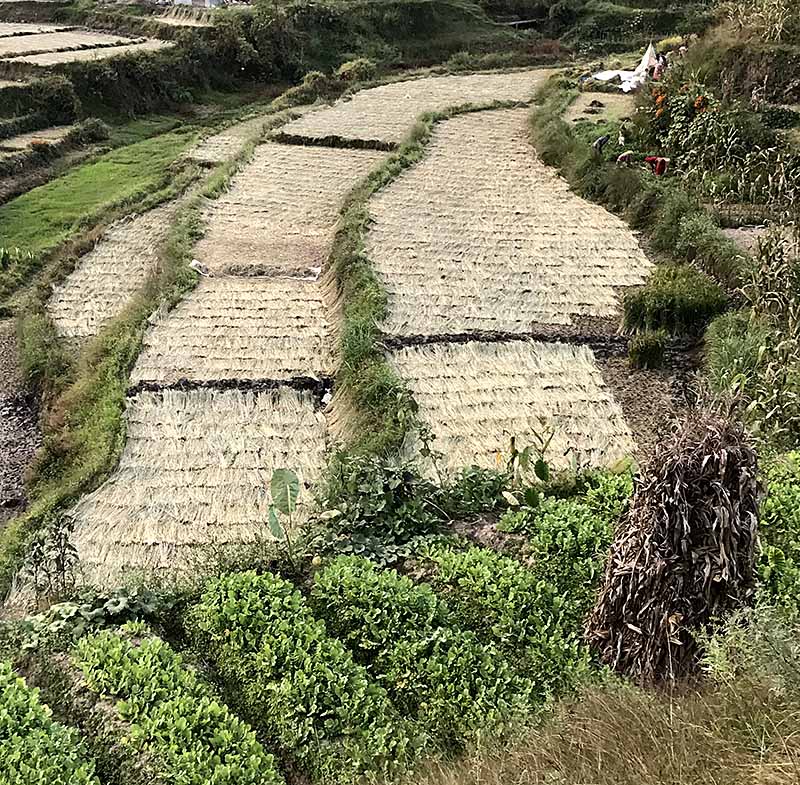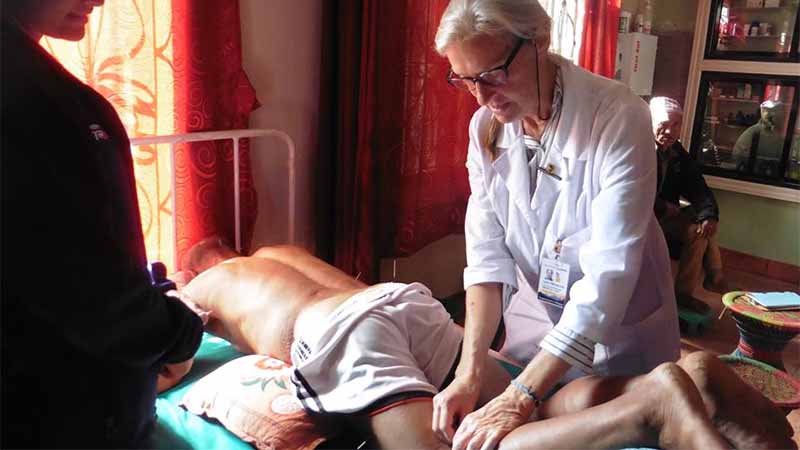
I’ve been moving around for awhile, but for most of my life I lived in one place. There is much to be said about having roots and feeling at home. Nonetheless when you change places it gets easier and easier to feel at home.
So for two months Bajrabarahi was home. It may sound odd, but perhaps it was easy for me to feel at home there because it reminded me so much of my old home. Walking through the hills around Bajrabarahi was a constant déjà vu.
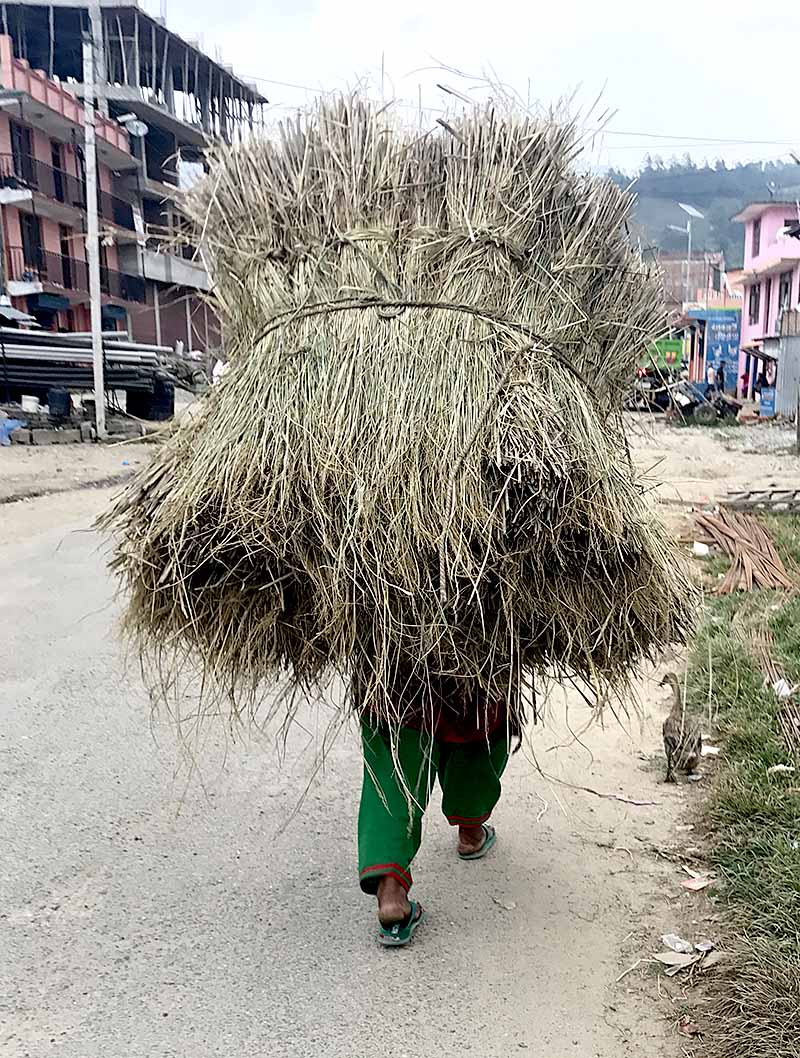
In many ways Bajrabarahi was like my old home. Where I lived in the Apennine mountains in Central Italy, the houses are made of stone. Since the area is subject to earthquakes, the houses are often cracked, often abandoned. A wood stove and a fire cooks the food and keeps you warm. Water comes from the spring.
Just one generation before my time, the hills were terraced and ploughed by oxen, wheat was threshed the way rice is threshed in Bajra. Life is hard. The farmers say: “la terra è bassa!” The ground is low! You have to bend down to do whatever needs to be done.
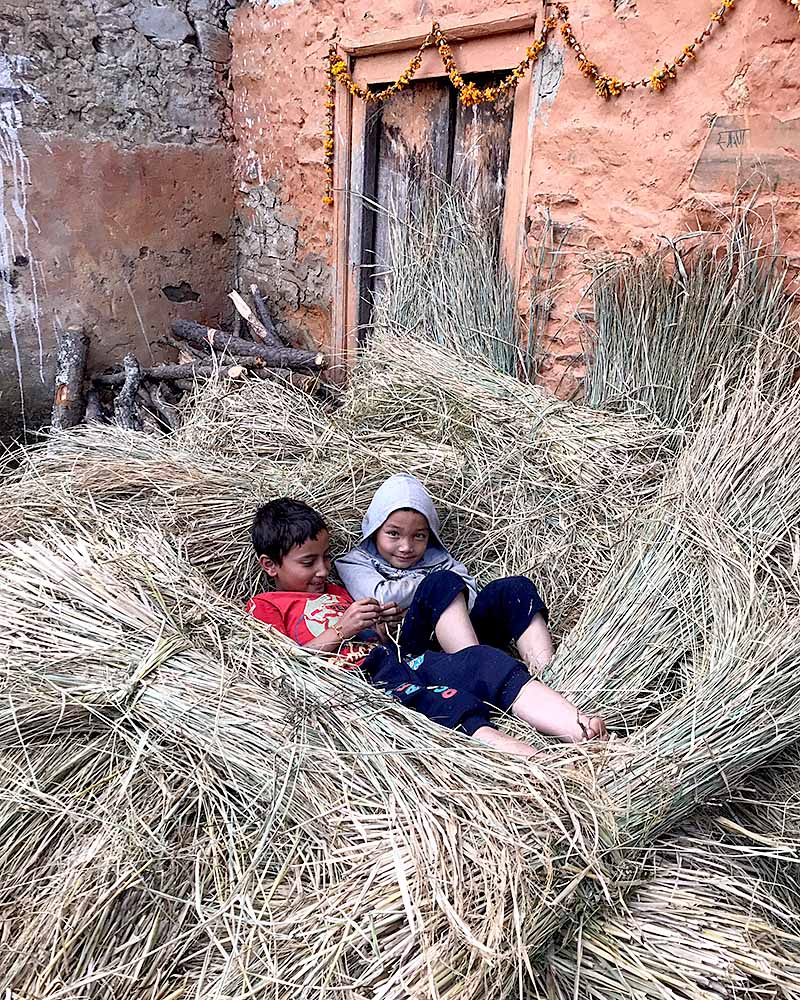
If anything creates roots it is working the land. The land is measured in palm widths, my uncle would say. When you’ve been out there with the hoe, you know where it’s softer, where it’s deeper, where there are more stones. Working the land with your hands in the earth is, I believe, our greatest connection to the grand flow of humanity. It connects us to all our ancestors, from our mothers thousands of years ago collecting and sowing wild seeds to every farmer all over this earth who sows, harvests and feeds the world.
I’m relieved not to be a farmer any more. I don’t have to run down and milk the cow, split and stack wood. It’s not just all the hard work - I don’t have to worry when it will stop raining so I can plant the fields, or worry that the weather will change before I can harvest my crops. But there is nothing like that connection to the soil, to a place.
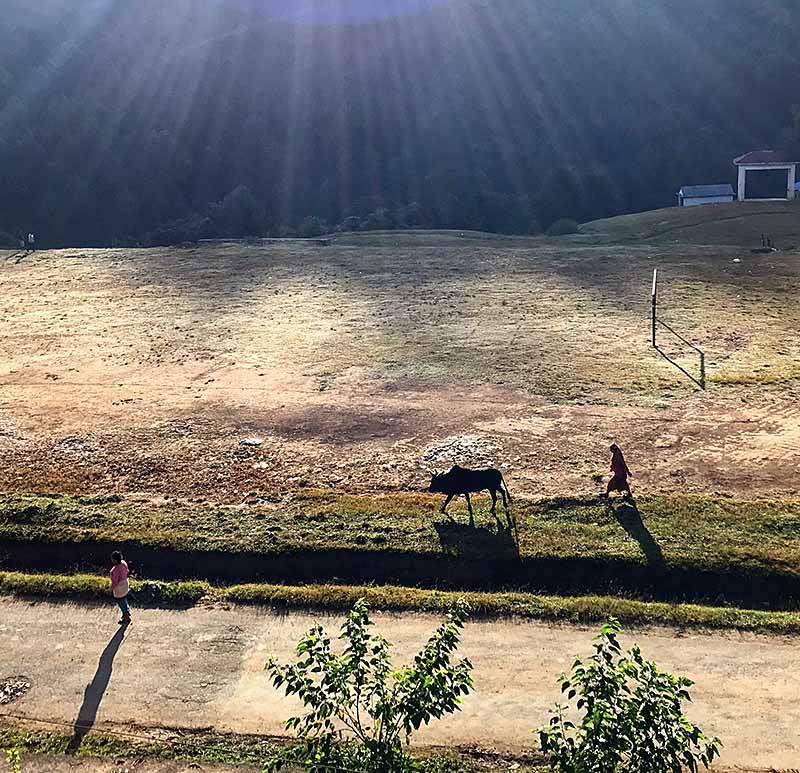
I have so much respect for the farmers in Bajrabarahi because not only do they work hard, they work beautifully. They arrange the cut stalks of rice and corn with attention and care. They plant hedges along the sides of the terraces, flowers in their gardens. Each terraced field with perfect rows demonstrates that these are people who do all their hard work with dignity and love.
Attention to the noble work of farming is important to us as acupuncturists and East Asian medicine practitioners. The roots of our medicine come from an agricultural society and much of the theory of East Asian medicine is not complicated or philosophical, it is simply farmer’s logic. For example, water puts out a fire, fire melts the metal to make an ax to cut wood, plant the same crop too long in the same field and the earth is exhausted, the earth is piled up or dug to make canals to control the water.
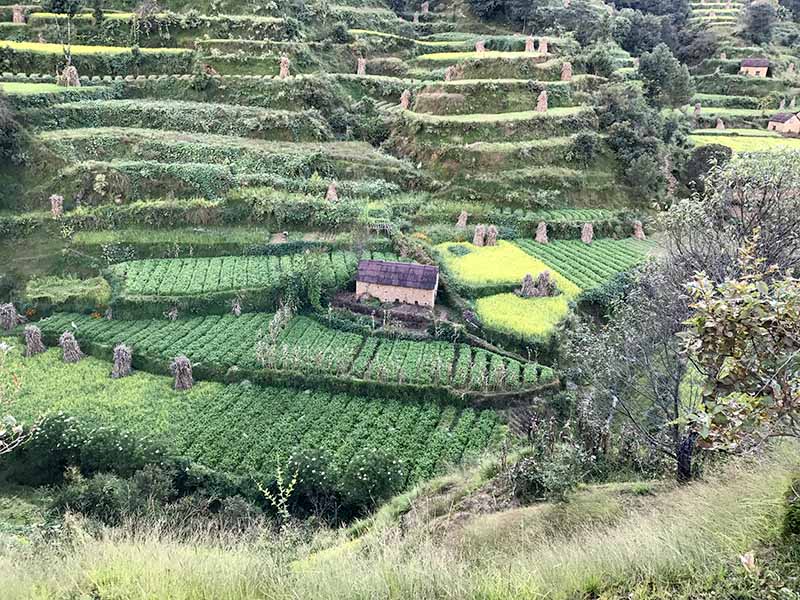
When you dig a ditch for water you know you’ll have to keep it cleared of debris for the water to flow smoothly. Our needles or hands are the shovels and hoes that clear the channels so everything can flow and pain can be relieved.
Attention to the weather, to wind, damp, heat, and cold are just as important to us as they are to a farmer. We must be watchful for changes and act with good timing.
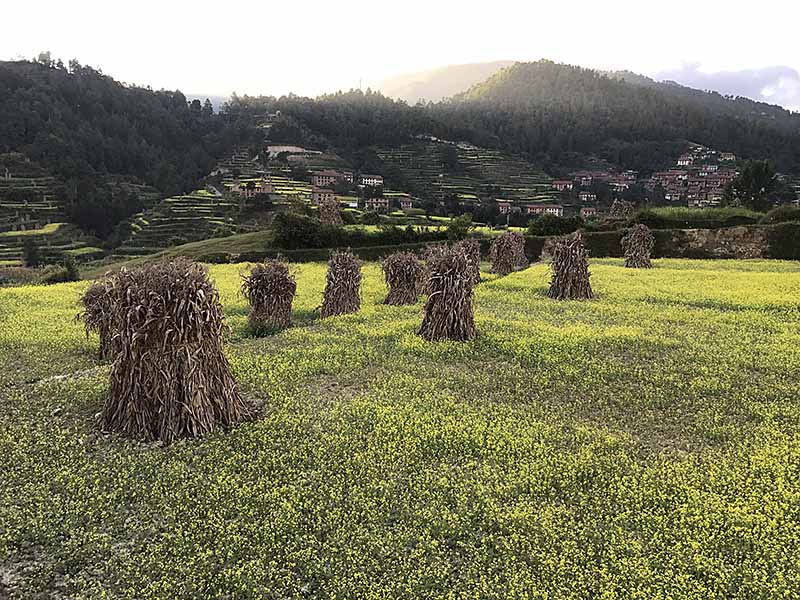
It is both respectable and useful to be a good farmer or a good doctor. The farmers of Bajrabarahi make good patients, their sense of humor (or their shyness) and their dignity accompany their sore knees and backs. With them I’ve reflected on how the course of your life can change in a moment with an accident, a fever, or a stroke. I’ve been amazed at their resilience and determination in dealing with their maladies and hardships.
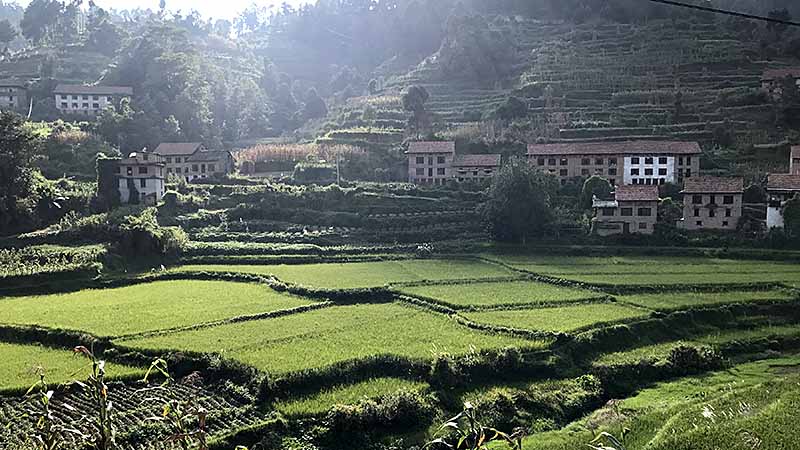
My patients were always pleased to know that I once had a cow and grew channa and dhal! I never worked as hard as they do, but I’m glad my life experience has given me an inkling of what their lives are like. --- Lynn Minervini
